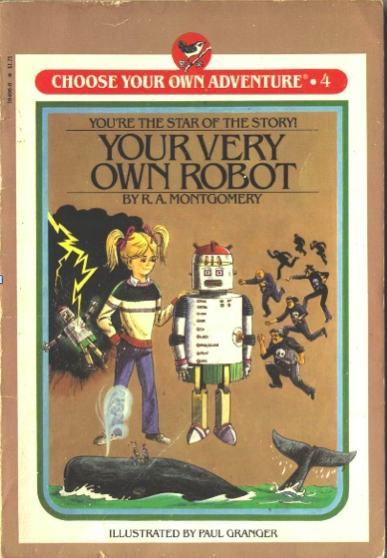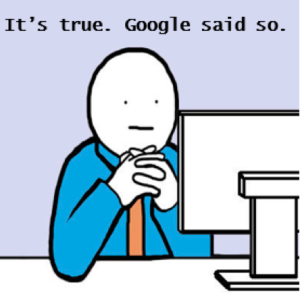The recent news of LinkedIn’s acquisition of Connectifier sent the world of recruiting and sourcing into a frenzy. It’s been interesting to watch reactions to the news – some congratulated Connectifier for this huge win, while others prepare for yet another sourcing tool to disappear by being integrated into an existing resource.
I LOVE @Connectifier — congratulations, guys!!! @LinkedIn acquires startup Connectifier https://t.co/XBVHbbhudO via @VentureBeat
— Liz Wessel (@lizwessel) February 4, 2016
Just learned @Connectifier was acquired by LinkedIn. Awesome, another company with great potential probably ending up like Rapportive. Gone
— Bryan Wilson (@bryanmwilson) February 4, 2016
What this news really brought to light, to me at least, was the continual need for recruiting professionals to understand search fundamentals. [clickToTweet tweet=”Tools will come and go but critical thinking will allow you to succeed regardless of the tools you use” quote=”Tools will come and go, but critical thinking skills are what give you a solid professional foundation and will allow you to exceed no matter what you do or where you go”]
Critical thinking skills are what we develop when we take time to analyze an issue, situation, problem, etc. and think about all of the possible outcomes, directions, and solutions that could result from the path(s) we take. It’s a skill that is lacking in recruiting today, but also in plenty of other industries. I was recently talking with one of my engineering managers at HPE about hiring practices, and the topic of critical thinking came up. We were talking with some of the engineers on his team about interview questions, and he was explaining to them that a question he sometimes uses that seems to have no relevance to the job itself was actually one of the most important questions he could ask, because it reveals candidates’ ability to exercise critical thinking skills in a related development problem.
One of my favorite questions to pose when interviewing sourcing candidates is: what happens when I take away your applicant tracking system AND your LinkedIn account (paid AND free access)? I want to see what other paths you will take to continue doing your job when your favorite resources are unavailable. I also ask how they keep their skills sharp and pursue continual education. I want to hear about specific resources (not just “I Google stuff”), mentorship relationships, reading books, and other proactive activities that demonstrate a deep desire to understand the job function as well as the industry in which they work. At the end of the day, I’m more likely to hire a less experienced sourcer who can be more scrappy and creative and who takes responsibility for his or her career development, than a heavily experienced sourcer who only cares to mine LinkedIn profiles and doesn’t feel like he or she could learn anything more about this role.
One-Trick Ponies
 When we as sourcers and recruiters become over-reliant on a few tools – like LinkedIn, Connectifier, Google searches, the phone – we limit our current and future employability because we essentially become “one trick ponies.” Sure, the use of those tools may result in the most submittals or hires, but what happens when those tools go away? Can you quickly switch gears and try something else? Are you even willing to?
When we as sourcers and recruiters become over-reliant on a few tools – like LinkedIn, Connectifier, Google searches, the phone – we limit our current and future employability because we essentially become “one trick ponies.” Sure, the use of those tools may result in the most submittals or hires, but what happens when those tools go away? Can you quickly switch gears and try something else? Are you even willing to?
The very first presentation I ever made at a recruiting conference was based upon the Choose Your Own Adventure books. For those not familiar with these books, they provide you the opportunity to choose the outcome of the story by offering several different story lines within the same book. Read about 15 pages in, and you are posed with a couple of options. You choose a path and turn to that part of the story to continue. I loved these books, and eventually I would turn to find the best ending in the book and ‘reverse engineer’ my way back through the path to get there. In doing this I began discovering that there wasn’t just one path that would lead to the best ending – quite often, there were multiple storylines that could bring me there. This is what really made me enjoy reading the books because I knew that I could pursue a few different paths and learn new things along the way, while eventually reaching that great ending.
In my opinion, these books helped me with critical thinking and are one of the things that has helped me to be successful in my sourcing career. By understanding what story ending I wanted (i.e. finding a qualified individual) and reverse engineering the story (figuring out the most likely resources or tools that would lead to finding that individual), I could get there faster. By discovering that there were multiple ways to get to that best ending (not using only one or two tools or resources) I learned new things and experienced other interesting storylines along the way (finding other potential candidates and uncovering useful new tools and resources).
As a manager now, I have a responsibility to deliver results to our business in addition to making sure my team is meeting its goals efficiently and effectively. I noticed in looking at our annual numbers that we were heavily reliant on LinkedIn for sourcing prospects. I don’t deny that LinkedIn is a great resource for sourcers, but it’s not the only one. I began instituting “Search and Discovery” days for my team – two days each a month during which they were not to log in to LinkedIn and instead spend time in a new or unfamiliar tool or resource, digging in deep to learn about its capabilities. There was no expectation of lead generation on these days, and the only requirement was to share what was learned in our weekly team meeting and to write that information in a shared online notebook so the whole team could access it at any time. While I fully believe in the Pareto Principle (that 80% of your results will come from 20% of your resources) I also believe that by encouraging learning about and using other resources this will further develop my team’s sourcing skills as they learn how to approach tool usage with a specific purpose of learning how and why it works. We’ve already had success stories about qualified prospects coming from a few of those new resources.
Source Like a Scientist
 Remember grade school Science Fair? Putting together tri-fold boards, trying to think of something to experiment on, standing in the school cafeteria on presentation day to deliver your project… I of course was a nerd and I liked Science Fair. One year I measured the effects of aerosol spray cans and car exhaust on atmospheric temperature, and another year I tested the whitening power of different bleach brands. I even did an experiment in high school testing the lung capacities of smokers vs. non-smokers because I was trying to convince my mother to quit smoking at the time. (she did eventually, years later) The purpose of the Science Fair is to teach kids how to apply the Scientific Method to solving a problem. You ask a question, do some research so you can develop a hypothesis, then set about testing your hypothesis so that you can collect data and draw a conclusion. Then you share the results and whether or not your hypothesis was correct. Often, along the way more questions are unearthed which could lead to many more experiments and paths for learning.
Remember grade school Science Fair? Putting together tri-fold boards, trying to think of something to experiment on, standing in the school cafeteria on presentation day to deliver your project… I of course was a nerd and I liked Science Fair. One year I measured the effects of aerosol spray cans and car exhaust on atmospheric temperature, and another year I tested the whitening power of different bleach brands. I even did an experiment in high school testing the lung capacities of smokers vs. non-smokers because I was trying to convince my mother to quit smoking at the time. (she did eventually, years later) The purpose of the Science Fair is to teach kids how to apply the Scientific Method to solving a problem. You ask a question, do some research so you can develop a hypothesis, then set about testing your hypothesis so that you can collect data and draw a conclusion. Then you share the results and whether or not your hypothesis was correct. Often, along the way more questions are unearthed which could lead to many more experiments and paths for learning.
What if we looked at sourcing in a similar manner? Approach sourcing partnerships with recruiters and hiring teams using the Scientific Method. Look into new tools and resources in the same way. Question your methods and others, and test your theories together on new approaches to find better results. I don’t think we ask enough questions as sourcers. When you take a new job, don’t just dive right in – ask some questions of the hiring manager, other sourcers or recruiters you’ll be partnering with, people currently on the team, anyone who can add some perspective. Do some initial research and come back to the group with your findings. Push back on strange requirements, and if they can’t be budged, test out your theories and bring back data. Showing data-driven results will always strengthen your position. At the end of the day, doing the same thing over and over again will produce the same results. If you’re getting good results, that’s awesome. Just never be afraid to test a new approach, and definitely don’t discourage others from doing so.
It’s All About the “Why”
 Around the same time as the news about Connectifier’s acquisition, NPR published a short article called, “OK, Google, Where Did I Put My Thinking Cap?” The article discusses the differences between looking up the answer to a question and learning how to understand, develop a viewpoint for, and eventually answer a question (thus being able to defend your response). The article provides differing points of view for how the Internet has made us stupid as well as how it’s expanded our capacity to learn. Ultimately, we live in a fast-paced world that wants more, faster, and for less money. Speed is important in every business. What ends up getting lost when we focus too heavily on speed is core understanding and, ultimately, critical thinking skills. The article continues on to point out that while being able to search for things online helps us to find answers more quickly, it doesn’t necessarily help us to understand the “why” behind the answers – that is, unless we purposely continue to seek.
Around the same time as the news about Connectifier’s acquisition, NPR published a short article called, “OK, Google, Where Did I Put My Thinking Cap?” The article discusses the differences between looking up the answer to a question and learning how to understand, develop a viewpoint for, and eventually answer a question (thus being able to defend your response). The article provides differing points of view for how the Internet has made us stupid as well as how it’s expanded our capacity to learn. Ultimately, we live in a fast-paced world that wants more, faster, and for less money. Speed is important in every business. What ends up getting lost when we focus too heavily on speed is core understanding and, ultimately, critical thinking skills. The article continues on to point out that while being able to search for things online helps us to find answers more quickly, it doesn’t necessarily help us to understand the “why” behind the answers – that is, unless we purposely continue to seek.
Sourcing is about more than conducting Internet searches. It’s about more than just picking up the phone and calling people. Sourcing has got to be about understanding where to look, what tools to use, AND WHY. WHY would it be better to call into a small local accounting firm for prospects than to look for resources online? WHY will your time be better spent teaching your hiring manager how to browse and reach out to their own network than doing it yourself? WHY is taking an extra 60 seconds to locate someone’s personal email address likely to be more effective than sending an InMail? WHY spend the time sharing industry-related articles on Twitter or Instagramming photos of you at a tech conference? Understanding why some things work in some situations, where others work in different situations, will help you as a sourcer to be better rounded in your abilities to find anything at any time. It doesn’t happen overnight – this comes from trial-and-error, applying a Scientific Method to your sourcing methods, and ultimately trying a bunch of different angles to find what you’re looking for to see what ultimately will produce the best and most timely results. In my experience as well, learning from others will help to speed up the process. However, there is no substitute for taking the time to develop your own best practices and constantly asking why.
Final Thoughts and Recommendations
If you have any desire to make yourself extremely employable in the recruiting industry, you’ve got to get away from being overly reliant on your tools. There is no tool that has been or will be around forever – not the Internet, not the phone, not anything. Ultimately, the best “tool” in your toolbelt is your brain.
Managers of sourcing teams, please encourage and make time for your team to explore creative new avenues for sourcing. It’s important to make sure deliverables are met but in my opinion it is equally important to ensure our teams develop critical thinking skills to continue to demonstrate the value sourcing brings to the greater talent acquisition team.
Sourcers and sourcing recruiters, engage your brains to think critically about your search assignments and ask “why” along the way. Don’t be afraid to explore new ways to find good candidates. If you can’t find time during your workday to do it, then do it on your own. Trust me, it’s worth it.
And finally, advice for everyone: don’t learn about, use, or purchase a tool just because everyone else is. Try to think about why it would work for you, and how it could be incorporated into your existing workflow. Consider what value it might add to your existing process. And do your best to understand the foundational aspects of what makes it work. You never know when that tool may no longer be available to you.
Image Credit: Duncan Hull
